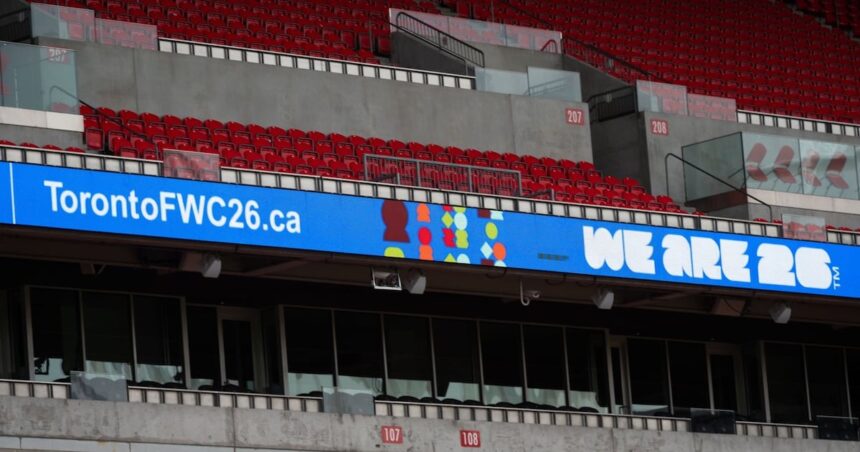The mood at City Hall shifted dramatically yesterday as Premier Doug Ford extended what appears to be an olive branch regarding Toronto’s FIFA World Cup hosting costs. After weeks of tension between provincial and municipal officials, Ford’s latest comments suggest a potential breakthrough in the funding standoff.
“I’m not saying no,” Ford told reporters during an unrelated press conference at Humber College. “We’re going to sit down with the mayor and the federal government and look at the business case.”
This marks a notable shift from Ford’s previous position that Toronto should manage its $380 million hosting bill without additional provincial support. The city is responsible for security, transportation infrastructure, and fan experience zones when Toronto hosts five World Cup matches in 2026.
Mayor Olivia Chow, who has actively campaigned for provincial assistance, responded cautiously to Ford’s comments. “I welcome the Premier’s willingness to discuss sharing these significant costs,” she said during an afternoon media availability. “Toronto taxpayers shouldn’t bear this burden alone when the economic benefits will extend throughout Ontario.”
Economic impact studies from Toronto Metropolitan University suggest the World Cup could generate over $800 million in economic activity for the Greater Toronto Area and create approximately 3,500 temporary jobs. Tourism Toronto estimates visitors will book more than 292,000 hotel room nights during the tournament.
John MacIntyre, professor of sports economics at York University, believes Ford’s change in tone reflects political reality. “The Premier recognizes this is becoming a no-win situation politically,” MacIntyre told me by phone. “The World Cup is enormously popular, and being seen as the politician who jeopardized Toronto’s role would be damaging.”
The federal government has already committed $177 million toward Toronto’s hosting expenses. City staff reports indicate that without additional support, Toronto may need to make significant budget adjustments or increase property taxes to cover the remaining costs.
Behind the scenes, business leaders have reportedly been pressuring both levels of government to resolve the impasse. Rosanne Davidson, president of the Toronto Region Board of Trade, emphasized the tournament’s significance: “This isn’t just about soccer. It’s about showcasing Toronto to a global audience of billions and creating lasting economic opportunities.”
FIFA’s strict hosting requirements include substantial security protocols, transportation guarantees, and fan experience zones that far exceed typical sporting events. City staff estimate security costs alone could reach $185 million.
For Torontonians like James Chen, who operates a restaurant near BMO Field where matches will be played, the political breakthrough can’t come soon enough. “I’ve already started planning special menus and hiring extra staff,” Chen said. “This will be huge for small businesses if they get it right.”
Critics note that previous major sporting events haven’t always delivered promised economic benefits. Professor Anita Mendelsohn of the University of Toronto’s Rotman School of Management cautions against excessive optimism. “Cities often overestimate revenues and underestimate costs with these mega-events,” she warned. “The true economic impact is typically more modest than projected.”
Meanwhile, preparations continue regardless of the funding uncertainty. Infrastructure improvements around BMO Field are already underway, and FIFA officials conducted their most recent site visit last month.
Ford emphasized that any provincial support would need to demonstrate clear returns. “We’re not just going to write blank checks,” he stated. “But I understand how important this is for Toronto and Ontario’s global profile.”
With just over two years until kickoff, the clock is ticking for all parties to finalize arrangements. Chow has proposed a three-way funding split between municipal, provincial and federal governments.
What remains clear is that Toronto’s moment on the global sporting stage comes with both tremendous opportunities and significant financial challenges. As negotiations continue behind closed doors, residents can only hope the political posturing gives way to practical solutions before the world arrives at our doorstep.







